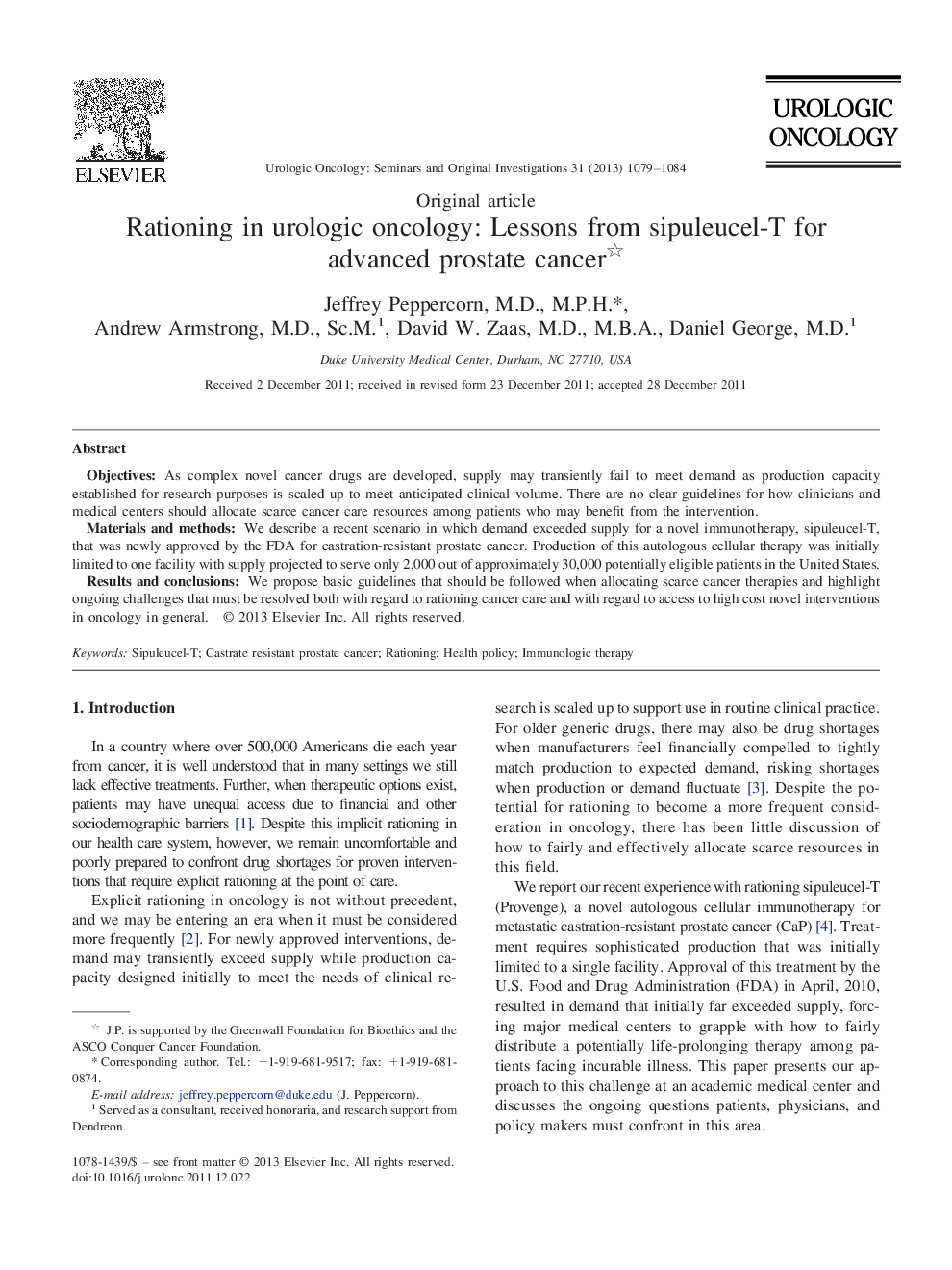| Article ID | Journal | Published Year | Pages | File Type |
|---|---|---|---|---|
| 3999901 | Urologic Oncology: Seminars and Original Investigations | 2013 | 6 Pages |
ObjectivesAs complex novel cancer drugs are developed, supply may transiently fail to meet demand as production capacity established for research purposes is scaled up to meet anticipated clinical volume. There are no clear guidelines for how clinicians and medical centers should allocate scarce cancer care resources among patients who may benefit from the intervention.Materials and methodsWe describe a recent scenario in which demand exceeded supply for a novel immunotherapy, sipuleucel-T, that was newly approved by the FDA for castration-resistant prostate cancer. Production of this autologous cellular therapy was initially limited to one facility with supply projected to serve only 2,000 out of approximately 30,000 potentially eligible patients in the United States.Results and conclusionsWe propose basic guidelines that should be followed when allocating scarce cancer therapies and highlight ongoing challenges that must be resolved both with regard to rationing cancer care and with regard to access to high cost novel interventions in oncology in general.
